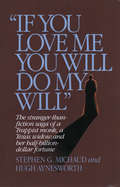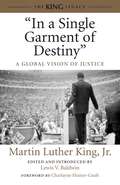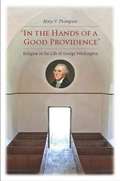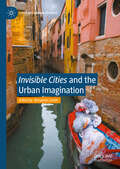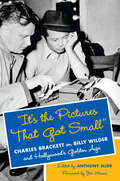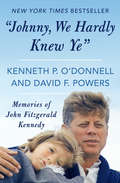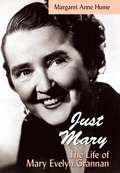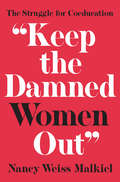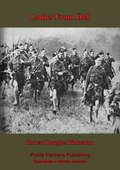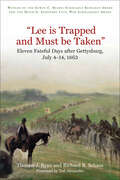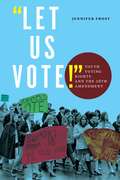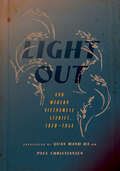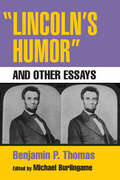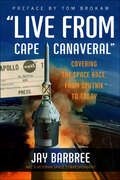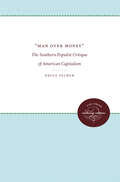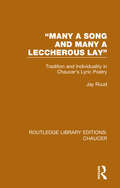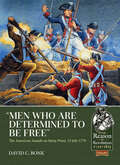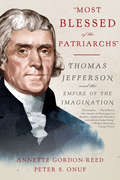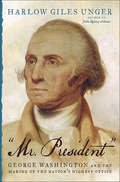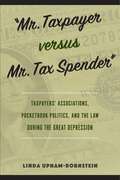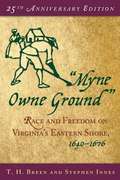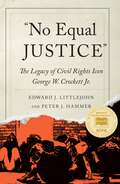- Table View
- List View
"If We Return, We Will Be Killed": Consolidation of Ethnic Cleansing in Darfur, Sudan
by Human Rights WatchSince February 2003, in the context of a military counter-insurgency campaign against two rebel groups, the Sudan Liberation Army (SLA) and the Justice and Equality Movement (JEM) Sudanese government forces and government-backed ethnic militias known as "Janjaweed" have committed war crimes, crimes against humanity and "ethnic cleansing" in the Darfur region of Sudan. Government forces and militias have systematically targeted civilian communities that share the same ethnicity as the rebel groups, killing, looting, raping, forcibly displacing and destroying hundreds of villages. For their part, the rebel groups have abducted civilians, attacked police stations and other government institutions, and raided and looted substantial numbers of livestock and commercial goods from trucks and vehicles traveling on roads in Darfur. The rebels have also been responsible for some direct and indiscriminate attacks that have resulted in deaths and injuries to civilians and for the use of child soldiers. This report documents and analyzes the continuing violence by all parties to the conflict, obstacles to return and to the reversal of ethnic cleansing, the government's efforts to end impunity and the international community's response so far to the ongoing human rights crisis in Darfur.
"If You Love Me, You Will Do My Will": The Stranger-Than-Fiction Saga of a Trappist Monk, a Texas Widow, and Her Half-Billion-Dollar Fortune
by Stephen G. Michaud Hugh AynesworthSome images in this ebook are not displayed owing to permissions issues.
"In a Single Garment of Destiny": A Global Vision of Justice (King Legacy #8)
by Martin Luther King Jr. Lewis V. Baldwin Charlayne Hunter-GaultAn unprecedented and timely collection that captures the global vision of Dr. King--in his own words. Too many people continue to think of Dr. King only as "a southern civil rights leader" or "an American Gandhi," thus ignoring his impact on poor and oppressed people around the world. "In a Single Garment of Destiny" is the first book to treat King's positions on global liberation struggles through the prism of his own words and activities. From the pages of this extraordinary collection, King emerges not only as an advocate for global human rights but also as a towering figure who collaborated with Eleanor Roosevelt, Albert J. Luthuli, Thich Nhat Hanh, and other national and international figures in addressing a multitude of issues we still struggle with today--from racism, poverty, and war to religious bigotry and intolerance. Introduced and edited by distinguished King scholar Lewis Baldwin, this volume breaks new ground in our understanding of King.
"In the Hands of a Good Providence"
by Mary V. ThompsonAttempts by evangelical Christians to claim Washington and other founders as their own, and scholars' ongoing attempts to contradict these claims, are nothing new. Particularly after Washington was no longer around to refute them, legends of his Baptist baptism or secret conversion to Catholicism began to proliferate. Mount Vernon researcher Mary Thompson endeavors to get beyond the current preoccupation with whether Washington and other founders were or were not evangelical Christians to ask what place religion had in their lives. Thompson follows Washington and his family over several generations, situating her inquiry in the context of new work on the place of religion in colonial and postrevolutionary Virginia and the Chesapeake.Thompson considers Washington's active participation as a vestryman and church warden as well as a generous donor to his parish prior to the Revolution, and how his attendance declined after the war. He would attend special ceremonies, and stood as godparent to the children of family and friends, but he stopped taking communion and resigned his church office. Something had changed, but was it Washington, the church, or both? Thompson concludes that he was a devout Anglican, of a Latitudinarian bent, rather than either an evangelical Christian or a Deist. The meaning of this description, Thompson allows, when applied to eighteenth-century Virginia gentlemen, is far from self-evident, leaving ample room for speculation.
"Invisible Cities" and the Urban Imagination (Literary Urban Studies)
by Benjamin LinderIn 1972, Italo Calvino published Invisible Cities, a literary book that masterfully combines philosophy and poetry, rigid structure and free play, theoretical insight and glittering prose. The text is an extended meditation on urban life, and it continues to resonate not only among literary scholars, but among social scientists, architects, and urban planners as well. To commemorate the 50th anniversary of Invisible Cities, this collection of essays serves as both an appreciation and a critical engagement. Drawing from a wide array of disciplinary perspectives and geographical contexts, this volume grapples with the theoretical, pedagogical, and political legacies of Calvino’s work. Each chapter approaches Invisible Cities not only as a novel but as a work of evocative ethnography, place-writing, and urban theory. Fifty years on, what can Calvino’s dreamlike text offer to scholars and practitioners interested in actually existing urban life?
"It's the Pictures That Got Small": Charles Brackett on Billy Wilder and Hollywood's Golden Age (Film and Culture Series)
by Anthony SlideGolden Age Hollywood screenwriter Charles Brackett was an extremely observant and perceptive chronicler of the entertainment industry during its most exciting years. He is best remembered as the writing partner of director Billy Wilder, who once referred to the pair as "the happiest couple in Hollywood," collaborating on such classics as The Lost Weekend (1945) and Sunset Blvd (1950). In this annotated collection of writings taken from dozens of Brackett's unpublished diaries, leading film historian Anthony Slide clarifies Brackett's critical contribution to Wilder's films and Hollywood history while enriching our knowledge of Wilder's achievements in writing, direction, and style. Brackett's diaries re-create the initial meetings of the talent responsible for Ninotchka (1939), Hold Back the Dawn (1941), Ball of Fire (1941), The Major and the Minor (1942), Five Graves to Cairo (1943), The Lost Weekend, and Sunset Blvd, recounting the breakthrough and breakdowns that ultimately forced these collaborators to part ways. Brackett was also a producer, served as president of the Academy of Motion Picture Arts and Sciences and the Screen Writers Guild, was a drama critic for the New Yorker, and became a member of the exclusive literary club, the Algonquin Round Table. Slide provides a rare, front row seat to the Golden Age dealings of Paramount, Universal, MGM, and RKO and the innovations of legendary theater and literary figures, such as Alfred Lunt, Lynn Fontanne, Edna Ferber, and Dorothy Parker. Through Brackett's keen, witty perspective, the political and creative intrigue at the heart of Hollywood's most significant films comes alive, and readers will recognize their reach in the Hollywood industry today.
"It's the Pictures That Got Small": Charles Brackett on Billy Wilder and Hollywood's Golden Age (Film and Culture Series)
by Charles Brackett&“Brackett&’s diaries read like a funnier, better-paced version of Barton Fink.&” —Newsweek Screenwriter Charles Brackett is best remembered as the writing partner of director Billy Wilder, who once referred to the pair as &“the happiest couple in Hollywood,&” collaborating on such classics as The Lost Weekend and Sunset Boulevard. He was also a perceptive chronicler of the entertainment industry, and in this annotated collection of writings from dozens of Brackett&’s unpublished diaries, film historian Anthony Slide clarifies Brackett's critical contribution to Wilder&’s films and enriches our knowledge of Wilder&’s achievements in writing, direction, and style. Brackett&’s diaries re-create the initial meetings of the talent responsible for Ninotchka, Hold Back the Dawn, Ball of Fire, The Major and the Minor, Five Graves to Cairo, The Lost Weekend, and Sunset Boulevard, recounting the breakthroughs and the breakdowns that ultimately forced these collaborators to part ways. In addition to a portrait of Wilder, this is rare view of a producer who was a president of the Academy of Motion Picture Arts and Sciences and the Screen Writers Guild, a New Yorker drama critic, and a member of the Algonquin Round Table. With insight into the dealings of Paramount, Universal, MGM, and RKO, and legendary figures such as Alfred Lunt, Lynn Fontanne, Edna Ferber, and Dorothy Parker, this book reveals the political and creative intrigue at the heart of Hollywood&’s most significant films. &“A fascinating look at Hollywood in its classic period, and a unique and indispensable must-have for any movie buff.&” —Chicago Tribune &“This feels as close as we can get to being in the presence of Wilder&’s genius, and he emerges as the cruelest as well as the wittiest of men.&” —The Guardian &“Not only rare insight into their often-stormy partnership but also an insider&’s view of Hollywood during that era.&” —Los Angeles Times &“Very entertaining.&” —Library Journal
"Johnny, We Hardly Knew Ye": Memories of John Fitzgerald Kennedy
by David F. Powers Kenneth P. O'DonnellThis classic New York Times bestseller is an illuminating portrait of JFK—from his thrilling rise to his tragic fall—by two of the men who knew him best. As a politician, John Fitzgerald Kennedy crafted a persona that fascinated and inspired millions—and left an outsize legacy in the wake of his murder on November 22, 1963. But only a select few were privy to the complicated man behind the Camelot image. Two such confidants were Kenneth P. O&’Donnell, Kennedy&’s top political aide, and David F. Powers, a special assistant in the White House. They were among the president&’s closest friends, part of an exclusive inner circle that came to be known as the &“Irish Mafia.&” In Johnny, We Hardly Knew Ye, O&’Donnell and Powers share memories of Kennedy, his extraordinary political career, and his iconic family—memories that could come only from intimate access to the man himself. As they recount the full scope of Kennedy&’s journey—from his charismatic first campaign for Congress to his rapid rise to national standing, culminating on that haunting day in Dallas—O&’Donnell and Powers lay bare the inner workings of a leader who is cherished and mourned to this day, in a memoir that spent over five months on the New York Times bestseller list.
"Just Mary": The Life of Mary Evelyn Grannan
by Margaret Anne HumeJust Mary and Maggie Muggins are names that will arouse memories in those who grew up with CBC radio and television in the 1940s and 1950s. The creator of these and other children’s shows, former Fredericton schoolteacher Mary Grannan, became a radio star when she hit the national airwaves in 1939, her popularity peaking when Maggie Muggins moved to television in 1955. Long before The Friendly Giant and Mr. Dressup appeared, her work helped to shape the legacy of gentle children’s programming on CBC. Building on her broadcasting success, Grannan published over thirty books, most runaway best-sellers. Attired in stylish dress, extravagant hats, and enormous earrings, she made frequent guest appearances at public events across the country. She received the Beaver Award for her broadcasting and was honoured by the International Mark Twain Society and the Institute for Education by Radio at Ohio State University."Just Mary": The Life of Mary Evelyn Grannan is the first biography of this creative and once well-known Canadian woman. Immersing the reader in rich detail while showcasing excerpts of her writings through the years, the book presents an intimate examination of her life journey through previously unreleased personal letters, archives, an abundance of photographs, and interviews with family, friends, colleagues, and former students. This is the private Mary Grannan as the public has never before known her.
"Keep the Damned Women Out": The Struggle for Coeducation (The William G. Bowen Memorial Series in Higher Education)
by Nancy Weiss MalkielAs the tumultuous decade of the 1960s ended, a number of very traditional, very conservative, highly prestigious colleges and universities in the United States and the United Kingdom decided to go coed, seemingly all at once, in a remarkably brief span of time. Coeducation met with fierce resistance. As one alumnus put it in a letter to his alma mater, "Keep the damned women out." Focusing on the complexities of institutional decision making, this book tells the story of this momentous era in higher education--revealing how coeducation was achieved not by organized efforts of women activists, but through strategic decisions made by powerful men.In America, Ivy League schools like Harvard, Yale, Princeton, and Dartmouth began to admit women; in Britain, several of the men's colleges at Cambridge and Oxford did the same. What prompted such fundamental change? How was coeducation accomplished in the face of such strong opposition? How well was it implemented? Nancy Weiss Malkiel explains that elite institutions embarked on coeducation not as a moral imperative but as a self-interested means of maintaining a first-rate applicant pool. She explores the challenges of planning for the academic and non-academic lives of newly admitted women, and shows how, with the exception of Mary Ingraham Bunting at Radcliffe, every decision maker leading the charge for coeducation was male.Drawing on unprecedented archival research, "Keep the Damned Women Out" is a breathtaking work of scholarship that is certain to be the definitive book on the subject.
"Ladies From Hell,"
by Robert Douglas Pinkerton"With the London-Scottish Regiment During the First World WarThe 'Cockney Jocks' at war in Flanders and FranceThe wide distribution of Scots throughout Britain and the Empire led to the formation new 'Scottish' regiments and the London Scottish, formed in 1859 as a volunteer rifle corps and originally commanded by Lord Elcho, was a primary example. Elcho, anxious to embrace all the fighting men of Scotland into one brotherhood irrespective of their clan origins, uniquely clad the regiment in kilts of 'Hodden Grey,' a traditional hard wearing Scottish homespun cloth devoid of the tartan check and, as he perceived, being a drab colour suited for life on military campaign in the most practical way. Pinkerton, the author of this book was a soldier among the ranks of the regiment who answered the nation's call to arms during the First World War. The regiment was mobilised at the outbreak of hostilities and the 1st battalion had the distinction of being the first Territorials to go into action during operations at Messines in October 1914. Pinkerton takes his readers to war with the London Scottish on the western front where it took part in all the major offensives of the conflict. Predictably this vital account is filled with immediate first hand account action and anecdotes and is essential reading for anyone interested in the war in the trenches the kilted infantry knew."-Leonaur Print VersionAuthor -- Pinkerton, Robert Douglas.Text taken, whole and complete, from the edition published in New York, The Century co., 1918.Original Page Count - 254 pages.
"Lee is Trapped, and Must be Taken": Eleven Fateful Days after Gettysburg, July 4–14, 1863
by Thomas J. Ryan Richard R. SchausThousands of books and articles examine nearly every aspect of the Civil War, but the important retreat of the armies from the Gettysburg battlefield to the Potomac River has been but little covered. Until now, no one had produced a critical analysis of the command decisions made during that fateful time based upon available intelligence. “Lee is Trapped and Must be Taken”: Eleven Fateful Days after Gettysburg, July 4 to July 14, 1863, by Thomas J. Ryan and Richard R. Schaus, now available in paperback, rectifies this oversight. This comprehensive day-by-day account, which begins after the end of the Gettysburg battle, examines how Maj. Gen. George G. Meade organized and motivated his Army of the Potomac in response to President Abraham Lincoln’s mandate to bring about the “literal or substantial destruction” of Gen. Robert E. Lee’s defeated and retreating Army of Northern Virginia. As far as Lincoln was concerned, if Meade aggressively pursued and confronted Lee before he could escape across the flooded Potomac River, “the rebellion would be over.” The long and bloody three-day battle exhausted both armies. Both commanders faced the difficult tasks of rallying their troops for more marching and fighting. Lee had to keep his army organized and motivated enough to conduct an orderly withdrawal into Virginia. Meade faced the same organizational and motivational challenges with the added expectation of catching and defeating a still-dangerous enemy. Central to their decision-making was the information they received from their intelligence gathering resources about the movements, intentions, and capability of the enemy. The eleven-day period after Gettysburg was a battle of wits to determine which commander better understood the information he received and directed his army accordingly. Prepare for some surprising revelations. Ryan and Schaus rely on a host of primary sources to craft their study, including letters, memoirs, diaries, official reports, newspapers, and telegrams. The threading of these intelligence gems creates a gripping narrative with a significant amount of new information—which the authors use to offer their own direct and often damning conclusions. “Lee is Trapped and Must be Taken” is a sequel to Thomas Ryan’s Spies, Scouts, and Secrets in the Gettysburg Campaign (Savas Beatie, 2015), the recipient of the Bachelder-Coddington Literary Award and Gettysburg Civil War Round Table Distinguished Book Award.
"Left-Wing" Communism, an Infantile Disorder
by V. I. LeninThis book describes the influence of left-wing Communism in different countries.
"Let Us Vote!": Youth Voting Rights and the 26th Amendment
by Jennifer FrostThe fascinating tale of how a bipartisan coalition worked successfully to lower the voting age“Let Us Vote!” tells the story of the multifaceted endeavor to achieve youth voting rights in the United States. Over a thirty-year period starting during World War II, Americans, old and young, Democrat and Republican, in politics and culture, built a movement for the 26th Amendment to the US Constitution, which lowered the voting age from twenty-one to eighteen in 1971. This was the last time that the United States significantly expanded voting rights.Jennifer Frost deftly illustrates how the political and social movements of the time brought together bipartisan groups to work tirelessly in pursuit of a lower voting age. In turn, she illuminates the process of achieving political change, with the convergence of “top-down” initiatives and “bottom-up” mobilization, coalition-building, and strategic flexibility. As she traces the progress toward achieving youth suffrage throughout the ’60s, Frost reveals how this movement built upon the social justice initiatives of the decade and was deeply indebted to the fight for African American civil and voting rights.2021 marks the fiftieth anniversary of this important constitutional amendment and comes at a time when scrutiny of both voting age and voting rights has been renewed. As the national conversation around climate crisis, gun violence, and police brutality creates a new call for a lower voting age, “Let Us Vote!” provides an essential investigation of how this massive political change occurred, and how it could be brought about again.
"Light Out" and Modern Vietnamese Stories, 1930–1954 (NIU Southeast Asian Series)
by Paul Christiansen Quan Manh Ha"Light Out" and Modern Vietnamese Stories, 1930–1954, translated by Quan Manh Ha and Paul Christiansen, with an essay by Ngô Văn Giá, is the first anthology in English of colonial Vietnamese literature written by canonical authors. Light Out depicts colonial exploitation, impoverished peasants at the mercy of precarious crop cycles, and institutionalized corruption that pits peasants against village officials. Set over the course of a few days, the novella presents an intimate look into the rural society in northern Vietnam during the height of French colonialism, exposing the brutal realities of the period and the impact such deprivations have on the human spirit. The eighteen short stories included in this book thematically delineate colonial abuses, class discrimination, patriarchal expectations, and livelihoods tethered to an unstable environment. Aesthetically, they illuminate the impact of French literary traditions and Western thought on Vietnamese traditions of storytelling.
"Lincoln's Humor" and Other Essays
by Benjamin P. ThomasThis volume gathers the best previously unpublished and uncollected writings on Abraham Lincoln and Lincoln scholarship by one of his great biographers, Benjamin P. Thomas. A skilled historian and a masterful storyteller himself, Thomas was widely regarded as the greatest Lincoln historian of his generation. With these essays, he combines historical depth with narrative grace in delineating Lincoln's qualities as a humorist, lawyer, and politician. From colorful tall tales to clever barbs aimed at political opponents, Lincoln clothed a shrewd wit in a homespun, backwoods vernacular. He used humor to defuse tension, illuminate a point, put others at ease--and sometimes for sheer fun. From an early reliance on broad humor and ridicule in speeches and on the stump, Lincoln's style shifted in 1854 to a more serious vein in which humor came primarily to elucidate an argument. "If I did not laugh occasionally I should die," he is said to have told his cabinet, "and you need this medicine as much as I do." Thomas brings his deep knowledge of Lincoln to essays on the great man's tumultuous career in Congress, his work as a lawyer, his experiences in the Courts, and his opinions of the South. A gracious survey of Lincoln's early biographers, particularly Ida Tarbell, stands alongside an appreciation of Harry Edward Pratt, a key figure in the early days of the Abraham Lincoln Association. Thomas also assesses Lincoln's use of language and the ongoing significance of the Gettysburg Address. This diverse collection is enhanced by an introduction by Michael Burlingame, himself a leading biographer of Lincoln. Burlingame provides a balanced portrait of Thomas and his circuitous path toward writing history.
"Live from Cape Canaveral": Covering the Space Race, from Sputnik to Today
by Jay Barbree“From Sputnik to the International Space Station, Jay Barbree has seen it all, and reported it well. ‘Live from Cape Canaveral’ encapsulates the most technically exciting half century in history.” –Neil ArmstrongSome fifty years ago, while a cub reporter, Jay Barbree caught space fever the night that Sputnik passed over Georgia. He moved to the then-sleepy village of Cocoa Beach, Florida, right outside Cape Canaveral, and began reporting on rockets that fizzled as often as they soared. In "Live from Cape Canaveral," Barbree—the only reporter who has covered every mission flown by astronauts—offers his unique perspective on the space program. He shares affectionate portraits of astronauts as well as some of his fellow journalists and tells some very funny behind-the-scenes stories—many involving astronaut pranks. Barbree also shows how much the space program and its press coverage have changed over time. Warm and perceptive, he reminds us just how thrilling the great moments of the space race were and why America fell in love with its heroic, sometimes larger-than-life astronauts.
"Man Over Money": The Southern Populist Critique of American Capitalism
by Bruce PalmerA UNC Press Enduring Edition -- UNC Press Enduring Editions use the latest in digital technology to make available again books from our distinguished backlist that were previously out of print. These editions are published unaltered from the original, and are presented in affordable paperback formats, bringing readers both historical and cultural value.
"Many a Song and Many a Leccherous Lay": Tradition and Individuality in Chaucer's Lyric Poetry (Routledge Library Editions: Chaucer)
by Jay RuudOriginally published in 1992. Although they were apparently much appreciated in his own time, Chaucer’s lyrics have for most of the modern era been the most neglected of his poetic productions. This work offers a comprehensive overview of Chaucer’s lyric corpus. The author extends his scope to include in-depth discussions of literary and cultural influences that have their impact on Chaucer’s lyrics. Students who come to Chaucer’s poems for the first time will here receive an excellent introduction to each poem, the important literary issues surrounding the poem as defined by previous scholarship, and Ruud’s own clear style and balanced judgment. The persuasive proofs for Chaucer’s lyric innovations and his special style of poetry will also be of interest to Chaucerian specialist academics. The book traces Chaucer’s development as a lyric poet, from more conventional early works to more individualized later ones.
"Men who are Determined to be Free": The American Assault on Stony Point, 15 July 1779 (From Reason to Revolution)
by David C. BonkDuring 1779, armies under the command of American General George Washington and British General Sir William Clinton were locked in a strategic stalemate. The entry of the French into the war as American allies had shifted the strategic initiative and caused the British government to order Clinton to dispatch significant forces to the West Indies and southern colonies. The reduction in his available forces hampered Clinton’s efforts to bring Washington to a decisive engagement. Clinton decided to launch an attack north from New York to establish a base of operations that would allow an attack on the American fortress at West Point. In late June 1779 Clinton moved men and materiel into position for his thrust up the Hudson while Washington cautiously responded by moving his army north. Clinton struck on 3 July 1779, capturing the strategic Kings Ferry crossing of the Hudson River along with American forts at Stony Point and Verplank’s Point. Soon after Washington began to develop an audacious plan to recapture the strongpoint and restore American fortunes. After organizing an elite force of light infantry, Washington spent several days observing the British position at Stony Point and collecting intelligence on British defenses. He proposed a nighttime assault. At midnight on 15 July, 1779 Washington directed Brigadier General Anthony Wayne to lead 1,300 men against the British defenders of Stony Point. In little over one hour the American light infantry captured Stony Point With news of the American victory Washington quickly rode to the fort to congratulate Wayne and his men. Recognizing that he had neither the troops nor the resources needed to defend Stony Point against an expected British counterattack Washington ordered all supplies and arms to be removed, prisoners marched into captivity and the fortifications destroyed. Although the British did successfully reoccupy Stony Point several days later, the Americans trumpeted their unexpected victory and a chagrined General Clinton concluded a further offensive up the Hudson River towards West Point would be pointless.
"Most Blessed of the Patriarchs": Thomas Jefferson and the Empire of the Imagination
by Annette Gordon-Reed Peter S. OnufA groundbreaking work of history that explicates Thomas Jefferson's vision of himself, the American Revolution, Christianity, slavery, and race. Thomas Jefferson is often portrayed as a hopelessly enigmatic figure--a riddle--a man so riven with contradictions that he is almost impossible to know. Lauded as the most articulate voice of American freedom and equality, even as he held people--including his own family--in bondage, Jefferson is variably described as a hypocrite, an atheist, or a simple-minded proponent of limited government who expected all Americans to be farmers forever. Now, Annette Gordon-Reed teams up with America's leading Jefferson scholar, Peter S. Onuf, to present an absorbing and revealing character study that dispels the many clichés that have accrued over the years about our third president. Challenging the widely prevalent belief that Jefferson remains so opaque as to be unknowable, the authors--through their careful analysis, painstaking research, and vivid prose--create a portrait of Jefferson, as he might have painted himself, one "comprised of equal parts sun and shadow" (Jane Kamensky). Tracing Jefferson's philosophical development from youth to old age, the authors explore what they call the "empire" of Jefferson's imagination--an expansive state of mind born of his origins in a slave society, his intellectual influences, and the vaulting ambition that propelled him into public life as a modern avatar of the Enlightenment who, at the same time, likened himself to a figure of old--"the most blessed of the patriarchs." Indeed, Jefferson saw himself as a "patriarch," not just to his country and mountain-like home at Monticello but also to his family, the white half that he loved so publicly, as well as to the black side that he claimed to love, a contradiction of extraordinary historical magnitude. Divided into three sections, "Most Blessed of the Patriarchs" reveals a striking personal dimension to his life. Part I, "Patriarch," explores Jeffersons's origins in Virgina; Part II, " 'Traveller,' " covers his five-year sojourn to Paris; and Part III, "Enthusiast," delves insightfully into the Virginian's views on Christianity, slavery, and race. We see not just his ideas and vision of America but come to know him in an almost familial way, such as through the importance of music in his life. "Most Blessed of the Patriarchs" fundamentally challenges much of what we've come to accept about Jefferson, neither hypocrite nor saint, atheist nor fundamentalist. Gordon-Reed and Onuf, through a close reading of Jefferson's own words, reintroduce us all to our most influential founding father: a man more gifted than most, but complicated in just the ways we all are.
"Mr. President": George Washington and the Making of the Nation's Highest Office
by Harlow Giles UngerAlthough the framers gave the president little authority, George Washington knew whatever he did would set precedents for generations of future leaders. To ensure their ability to defend the nation, he simply ignored the Constitution when he thought it necessary. In a revealing new look at the birth of American government, #147;Mr. President” describes Washington’s presidency in a time of continual crisis, as rebellion and attacks by foreign enemies threatened to destroy this new nation. Constantly weighing preservation of the Union against preservation of individual liberties and states’ rights, Washington assumed more power with each crisis. In a series of brilliant but unconstitutional maneuvers he forced Congress to cede control of the four pillars of executive power: war, finance, foreign affairs, and law enforcement. Drawing on rare documents and letters, Unger shows how Washington combined political cunning and sheer genius to seize ever-widening powers, impose law and order while ensuring individual freedom, and shape the office of President of the United States.
"Mr. Taxpayer versus Mr. Tax Spender": Taxpayers' Associations, Pocketbook Politics, and the Law during the Great Depression
by Linda Upham-BornsteinDuring the Great Depression, the proliferation of local taxpayers’ associations was dramatic and unprecedented. The justly concerned members of these organizations examined the operations of state, city, and county governments, then pressed local officials for operational and fiscal reforms. These associations aimed to reduce the cost of state and local governments to make operations more efficient and less expensive. “Mr. Taxpayer versus Mr. Tax Spender” presents a comprehensive overview of these grassroots taxpayers’ leagues beginning in the 1860s and shows how they evolved during their heyday in the 1930s. Linda Upham-Bornstein chronicles the ways these taxpayers associations organized as well as the tools they used—constructive economy, political efforts, tax strikes, and tax revolt through litigation—to achieve their objectives. Taxpayer activity was a direct consequence of—and a response to—the economic crisis of the Great Depression and the expansion of the size and scope of government. “Mr. Taxpayer versus Mr. Tax Spender” connects collective tax resistance in the 1930s to the populist tradition in American politics and to other broad impulses in American political and legal history.
"Myne Owne Ground": Race and Freedom on Virginia's Eastern Shore, 1640-1676
by T. H. Breen Stephen InnesConcentrating on the lives of blacks who achieved freedom, this book describes how, against formidable odds, they amassed property, established plantations, acquired dependent labourers, and lived for several generations as free and independent members of Virginia society.
"No Equal Justice": The Legacy of Civil Rights Icon George W. Crockett Jr. (African American Life Series)
by Peter J. Hammer Edward J. Littlejohn"There is no equal justice for Black people today; there never has been. To our everlasting shame, the quality of justice in America has always been and is now directly related to the color of one’s skin as well as to the size of one’s pocketbook." This quote comes from George W. Crockett Jr.’s essay, "A Black Judge Speaks" (Judicature, 1970). The stories of Black lawyers and judges are rarely told. By sharing Crockett’s life of principled courage, "No Equal Justice" breaks this silence. The book begins by tracing the Crockett family history from slavery to George’s admission into the University of Michigan Law School. He became one of the most senior Black lawyers in President Franklin Roosevelt’s New Deal administration. Later, he played a central role fighting discrimination in the United Auto Workers union. In 1949, he became the only Black lawyer, in a team of five attorneys, defending the constitutional rights of the leaders of the U.S. Communist Party in United States v. Dennis, the longest and most dramatic political trial in American history. At the close of the case, Crockett and his defense colleagues were summarily sentenced to prison for zealously representing their clients. He headed the National Lawyers Guild office in Jackson, Mississippi, during 1964’s Freedom Summer. In 1966, he was elected to Detroit’s Recorder’s Court—the court hearing all criminal cases in the city. For the first time, Detroit had a courtroom where Black litigants knew they would be treated fairly. In 1969, the New Bethel Church Incident was Crockett’s most famous case. He held court proceeding in the police station itself, freeing members of a Black nationalist group who had been illegally arrested. In 1980, he was elected to the United States Congress where he spent a decade fighting President Reagan’s agenda, as well as working to end Apartheid in South Africa and championing the cause to free Nelson Mandela. Crockett spent his life fighting racism and defending the constitutional rights of the oppressed. This book introduces him to a new generation of readers, historians, and social justice activists.

